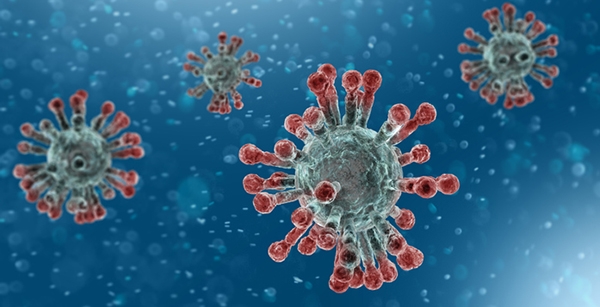
Help Your Skin Protect You From COVID-19
Our board-certified dermatologists in Jupiter know you’re concerned about the novel coronavirus, and that you’re seeking every possible avenue to protect your health.
One way you may not have thought of is to ensure your skin is as healthy as possible. This is because your skin is a significant barrier between you and the virus that causes COVID-19. Let us explain.
How skin protects you
By now, you’ve heard it over and over: Don’t touch your face, especially the all-important T-zone of eyes, nose, and mouth. This is because the coronavirus can enter the body through the mucus membranes found in these areas.
But it can also enter through cracks in the skin. Skin is our largest (and heaviest) organ, making up about a seventh of our total body weight.
Even at its thickest, our skin is only a few millimeters thick. But it is still able to protect us in myriad ways:
- it prevents dehydration from moisture loss, as well as keeping water from entering your body;
- it protects you from too much heat or cold;
- it filters harmful ultraviolet (UV) rays from the sun;
- it provides a warning of danger through such signals as warmth, cold, itching, pressure, or pain; and,
- it wards off germs, including bacteria and viruses.
This last benefit, of course, is what we’re concerned with here.
How skin works
Skin comprises three layers:
- the epidermis, which is the outermost layer
- the dermis, or middle layer
- the subcutis, or deepest layer
Each cell of the epidermis is so tightly packed that bacteria and viruses cannot get between them to enter your body. It also sheds dead skin cells constantly, removing these bacteria and viruses at the same time.
In addition, it contains specialized cells known as lymphocytes and Langerhans cells that essentially “grab” germs and transport them to the nearest lymph node to be contained and removed as waste.
The dermis, or middle layer, contains the dense network of tough, elastic fibers known as collagen, which support the epidermis.
The lowest layer, the subcutis, provides insulation and protective fat which cushion the bones and joints from bumps or blows, as well as producing many essential hormones, including vitamin D.
How to protect it
You know that hand washing is the best defense against the coronavirus. But doing it incorrectly can not only negate the benefits skin provides, but damage your skin, as well.
Whenever you come home, or after coughing, sneezing, or caring for someone in the household who is ill, wash your hands for at least 20 seconds with any kind of soap. It doesn’t matter what kind, as long as it’s soap, because you’re not trying to kill the virus (which technically isn’t alive), you’re removing it from your skin.
To illustrate what we mean, try an experiment: Sprinkle pepper in a bowl of water and insert a clean finger. You’ll see the pepper grains stick to your finger. Now spread soap on a different finger and insert it into the bowl. You’ll notice the pepper grains retreat from your soapy finger.
That’s exactly what you’re trying to accomplish with hand washing, and by the way, why you don’t need to use very hot water to wash with (which also damages the skin).
Be sure to cover every part of your hands, including the tops and under the nails, rinse thoroughly, dry with a paper towel if you have one, and throw the towel away. Then use a non-alcohol-based moisturizer to help prevent your skin from drying out, which can lead to cracking.
Give your skin the critical boost it needs
- Avoid harsh chemicals
Some people actually believe that spraying the skin with bleach will protect them from COVID-19. This is a myth because once the virus is in your body, nothing you put on the skin’s surface will deactivate it. The vapors from bleach can also damage the mucous membranes in your eyes, nose, and mouth, making them more susceptible to the coronavirus, as well as other pathogens.
Do not spray harsh disinfectants meant for cleaning surfaces on your skin, either. As we discussed above, proper washing with a mild hand soap is sufficient to remove the virus. And, when bathing or showering, avoid very hot water, as discussed above.
- Avoid smoking
In addition to all the other damage smoking does throughout your body, it also damages the skin.
- Avoid stress
Easier said than done these days, we know, but make an effort to reduce the amount of stress you’re facing to the greatest extent possible. And counteract its effects through a healthy diet, sufficient sleep, and adequate exercise. Remember, stress damages the immune system, and often shows up first on your skin.
We are still taking medical appointments on a limited basis, so be sure and let us know if you have any questions. We also have some great pre-paid specials for botox and filler so when this is over you can get back to looking and feeling like yourself again. Contact us for more information.

